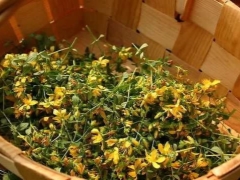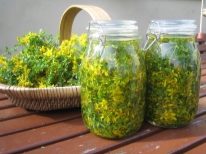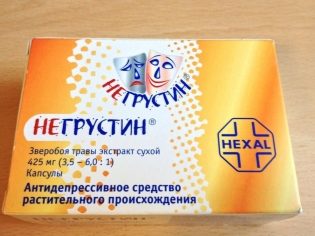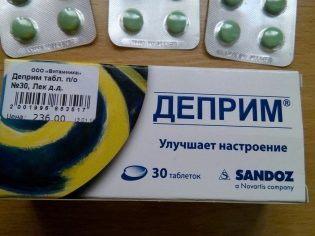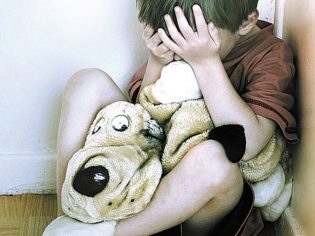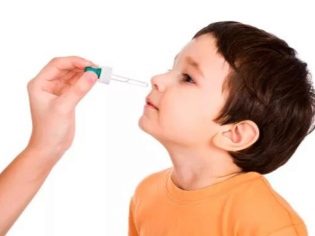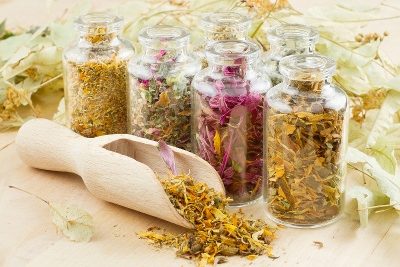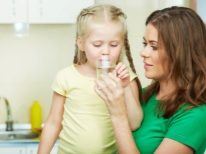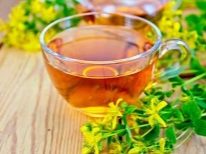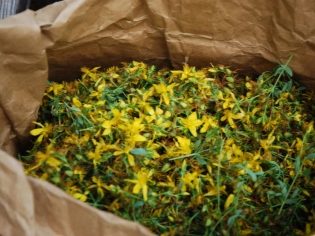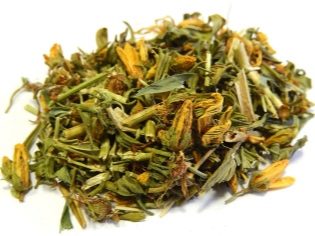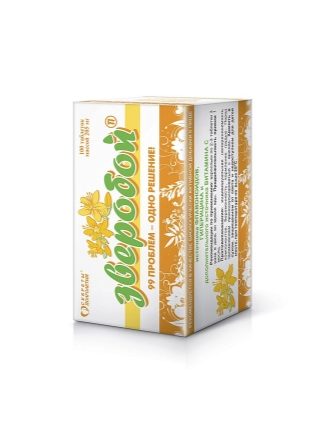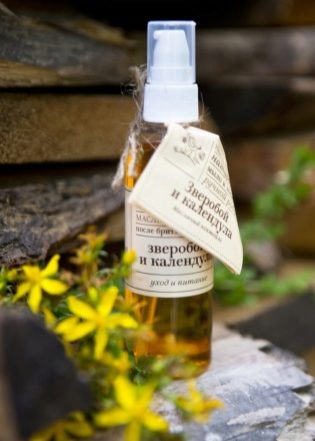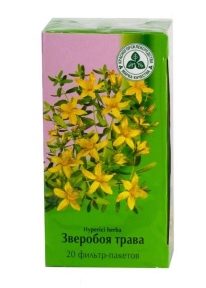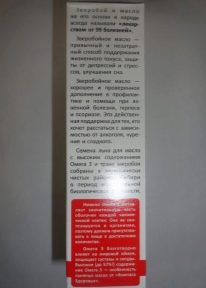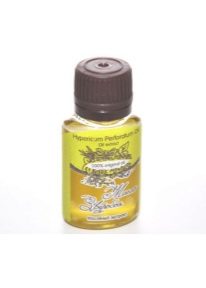St. John's Wort for children
Most parents are absolutely sure that folk remedies, especially herbs, are safer for children than pharmacy medicines. Sometimes this is true, but all medicinal plants to be included in the safe category is wrong. Today we will talk about St. John's wort - an incredibly useful and truly dangerous plant, as well as how to use it in the treatment of children's ailments.
Useful and healing properties
St. John's wort as a natural medicine has long been known.
Due to the rich composition, which includes numerous vitamins, mineral compounds, flavonoids, saponins, essential oil, it has a whole range of useful properties:
- Anti-inflammatory.
- Antidepressant.
- Sedative.
- Antiseptic.
- Antibacterial.
- Anesthetic
- The diuretic.
- Antihelminthic
Despite the “terrible” name and the current legends about its origin (that domestic animals died in agony from eaten grass), scientists did not record lethal cases in cattle that ate this plant.
Sometimes cows and horses showed signs of intoxication after eating Hypericum. Their nausea, pupils increased in size, were observed impaired coordination of movements.
In medicine, the plant began to be used during the time of Hippocrates. Modern pharmacology has taken all the beneficial properties of Hypericum to the weapon, and now it is part of some drugs for depression, such as Negrustin, "Deprim".
The ability of the herb to elevate mood and eliminate increased anxiety and depression is clinically proven and recognized as official medicine.
In folk medicine, leaves, stalks and flowers of Hypericum are used as an excellent remedy for diarrhea.
The ability of the herb to heal the mucous membranes is actively used in the preparation of decoctions for gargling with adenoids, nose - with a cold.
The sedative effect of bathing with decoction or infusion of Hypericum also extends to the correction of "delicate" problems, in particular, it helps from enuresis (bed-wetting).
Harm and contraindications
As part of the Hypericum, in addition to nutrients, there are poisons. That is why it is necessary to use it in the treatment of children with great care.
You can not give drugs on the basis of this plant and decoctions with infusions, if the child is prescribed a doctor to take pharmacy antibiotics, antidepressants, cardiac drugs, because the interaction of St. John's wort reduces to almost zero the effect of these drugs.
Long-term use of a medicinal plant can greatly harm a child — the liver, pancreas, and stomach will suffer.
Parents of children with fair skin and hair should be especially careful. Such babies are most sensitive to sunlight, and against the background of taking Hypericum and the preparations from it develops photosensitivity - excessive sensitivity to ultraviolet rays.
It is important to comply with the dosage, because otherwise there may be an overdose, which is manifested by vomiting, diarrhea, manifestations of allergy, anxiety, confusion, and even seizures.
From what age to give?
Giving St. John's Wort to children under 5 is absolutely not recommended. After this age, the use of the plant in the treatment of children's ailments is possible only with the permission of the pediatrician. Manufacturers have gone further.Due to the lack of knowledge of the effects of grass on the children's body, they stated the age limit for children's use - up to 12 years.
In practice, as already mentioned, doctors may allow to give St. John's wort from 5-6 years.
In what form to apply?
The first application of Hypericum should not be done inside. Initially, restless and nervous children from 5 years old recommend small dosages of home decoction or St. John's wort tincture as an additive for a bath.
For cooking broth Take a teaspoon of dry grass, cover with boiled, but cooled to 80 degrees water, hold under the lid for about 40 minutes, and then strain and add to the bath at the rate of half a glass of broth per 10 liters of water. The first bath should not be carried out for more than 3 minutes, then gradually increase the time of the procedures to 15 minutes. Repeat therapeutic baths should be no more than two times a week. The course duration is determined by the doctor depending on the diagnosis and the age of the patient.
Take St. John's wort inside is not worth up to 10-12 years. You can make lotions with decoction or infusion of this plant from the age of 6. From the same age with great care, with the permission of the pediatrician, you can gargle with sore throat or adenoids with St. John's wort broth, and also bury it in the nose, previously diluted with boiled water.
Tips for choosing
St. John's wort in pharmacies can be bought in several forms of release: from dried herbal raw materials in carton packs of 50 grams to filter bags containing heavily crushed plant parts.
Preparations with this herb are tabletted, in the form of oil (St. John's wort), alcohol tincture. For children's use, you can only buy grass in a pack and filter bags.
It is more convenient to use the grass in the bags, since the broth and the infusion of them do not need to be filtered and filtered, and it is also difficult to err with the proportions, because 1 bag is designed for a glass of water. But it should be remembered that the highly crushed raw materials act stronger than the grass packaged in packs.
Do not buy St. John's wort by ads on the Internet from private herbalists, as there is no guarantee that it was prepared in the most favorable season, properly dried and complied with all sanitary requirements. If you do not know how to collect and dry the plant on your own, trust in pharmaceutical preparations.
What to do if you are allergic?
Before applying Hypericum, test for allergies. Apply a few drops of broth to the back of the child’s palm and behind the ear and look at these places in an hour. If there is no redness, you can give the child a prepared remedy. However, it is desirable at the very first reception to give twice the water diluted with water in order to observe the reactions.
Allergy to St. John's wort is manifested by increased sensitization to animal hair, sunlight, nausea, rash, urticaria, headache, allergic cough and rhinitis.
If you notice the first manifestations of an inadequate reaction of the body, you should immediately stop taking the drugs based on this plant and report it to your doctor. In the event of a severe allergic reaction, you need to call an ambulance.
